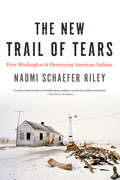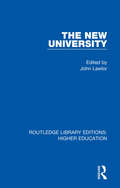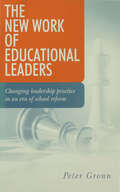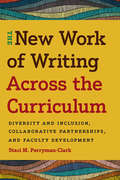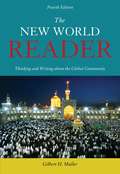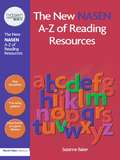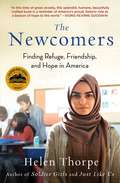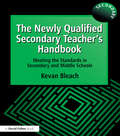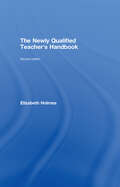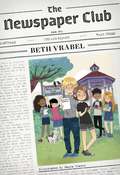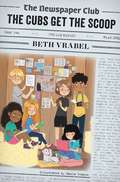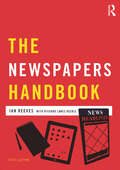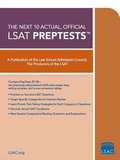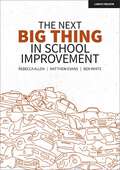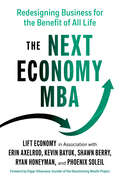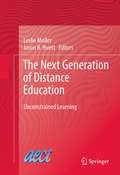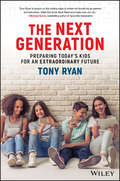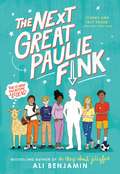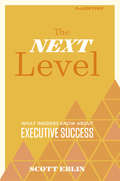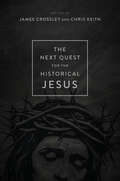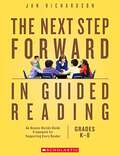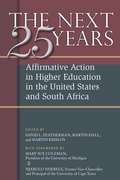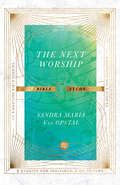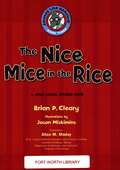- Table View
- List View
The New Trail of Tears: How Washington Is Destroying American Indians
by Naomi Schaefer Riley<P>If you want to know why American Indians have the highest rates of poverty of any racial group, why suicide is the leading cause of death among Indian men, why native women are two and a half times more likely to be raped than the national average and why gang violence affects American Indian youth more than any other group, do not look to history. <P> There is no doubt that white settlers devastated Indian communities in the 19th, and early 20th centuries. But it is our policies today-denying Indians ownership of their land, refusing them access to the free market and failing to provide the police and legal protections due to them as American citizens-that have turned reservations into small third-world countries in the middle of the richest and freest nation on earth. <P>The tragedy of our Indian policies demands reexamination immediately-not only because they make the lives of millions of American citizens harder and more dangerous-but also because they represent a microcosm of everything that has gone wrong with modern liberalism. They are the result of decades of politicians and bureaucrats showering a victimized people with money and cultural sensitivity instead of what they truly need-the education, the legal protections and the autonomy to improve their own situation. <P>If we are really ready to have a conversation about American Indians, it is time to stop bickering about the names of football teams and institute real reforms that will bring to an end this ongoing national shame.
The New University (Routledge Library Editions: Higher Education #15)
by John LawlorOriginally published in 1968 The New University is a collection of essays dealing with problems and opportunities of university development in our time. The main focus is upon the universities of the United Kingdom, but there are also accounts of American and Commonwealth Discussion and experiment. The book addresses a global scene and draws striking inferences from American practice. It also provides a survey of the plans for English expansion as they struck an informed observer. The book also considers the problem of stratification of existing universities and the prospects for any further development beyond present plans.
The New Work of Educational Leaders: Changing Leadership Practice in an Era of School Reform
by Peter Gronn`If there in one word to describe the issues addressed by Peter Gronn in The New Work of Educational Leaders it's "timely" And if there is one book that education policy makers, system CEOs and education ministers should find the time to read, this is it' - Educare News `This book is essential reading fro those involved in educational leadership and policy development. This work is also valuable for those interested in the locally organized and interactionally achieved context of institutional work' - Discourse: Studies in the Cultural Politics if Education `Though based in Australia, Peter Gronn shows familiarity with the British education system, and this boo is relevant to those in the compulsory and post-compulsory sectors interested in the themes of education leadership' - Learning and Skills Research In The New Work of Educational Leaders, Peter Gronn provides a new framework for understanding leadership practice. The work of leaders will increasingly be shaped by three overriding but contradictory themes: design; distribution; and disengagement. These are the `architecture' of school and educational leadership. Designer-leadership is the use of mandatory standards of assessment and accreditation for school leaders, such as the National Qualification for Headship (NPQH) in the United Kingdom and the (Interstate School Leaders Licensure Consortium (ISLLC) standards in the United States. Distributed patterns of leadership have developed in response to the intensification of school leaders' work under policy regimes of site-based and school self-management. Disengagement describes a culture of abstention, in which school systems anticipate leadership succession problems, such as projected shortages and recurring recruitment difficulties.
The New Work of Writing Across the Curriculum: Diversity and Inclusion, Collaborative Partnerships, and Faculty Development
by Staci M. Perryman-ClarkThe New Work of Writing Across the Curriculum is a descriptive analysis of how institutions can work to foster stronger intellectual activities around writing as connected to campus-wide diversity and inclusion initiatives. Author Staci M. Perryman-Clark blends theory and practice, grounds disciplinary conversations with practical examples of campus work, and provides realistic expectations for operations with budgetary constraints while enhancing diversity, equity, and inclusion work in higher education. Many of these initiatives are created in isolation, reinforcing institutional silos that are not used strategically to gain the attention of senior administrators, particularly those working at state-supported public institutions who must manage shrinking institutional budgets. Yet teaching and learning centers and WAC programs gain tremendously from one another by building explicit partnerships on campus-wide diversity initiatives that emphasize cultural competence. In addition, both cultural competence and written proficiency enhance the transferable skills necessary for completing undergraduate education requirements, and this work can be leveraged to draw the attention of senior administrative leadership. Faculty development and WAC need to make diversity and inclusion initiatives a priority for professional development. The New Work of Writing Across the Curriculum reviews initiatives that point to increased understanding of diversity and inclusion that will be of significance to administrators, WAC specialists, faculty developers, and diversity officers across the spectrum of institutions of higher learning.
The New World Reader
by Gilbert H. MullerWith compelling selections by some of the world's most respected and critically acclaimed writers, THE NEW WORLD READER, Fourth Edition, encourages exploration of the significant global challenges of the 21st century. Students gain a deeper understanding of the topics that affect their lives, such as the challenges and consequences of globalization, global warming, bilingual education, and redefined gender roles. Challenged by such notable contemporary thinkers and writers as Elie Wiesel, Fareed Zakaria, Richard Rodriguez, Edwidge Danticat, and Jane Goodall, students develop their reading and critical-thinking skills. A consistent pedagogical apparatus includes brief chapter introductions, author headnotes, and pre-reading questions that offer students a preview of the central theme in each section. Exercise sets follow each essay, providing for deeper writing, reading, and discussion opportunities.
The New nasen A-Z of Reading Resources (nasen spotlight)
by Suzanne Baker Lorraine PetersenThe New nasen A-Z of Reading Resources is a graded list of all current reading schemes complete with guidance on the books’ suitability for readers at different levels of experience and competence. It will: enable teachers, SENCos and support services to choose books that are appropriate yet sufficiently rewarding for struggling readers prove to be a time-saving resource for schools replenishing their reading stock follow up-to-the-minute thinking on ‘readability’. A great resource for all schools - primary and secondary - as well as support services, advisers and literacy consultants.
The Newcomers: Finding Refuge, Friendship, and Hope in an American Classroom
by Helen ThorpeFrom the award-winning author of Soldier Girls and Just Like Us, an &“extraordinary&” (The Denver Post) account of refugee teenagers at a Denver public high school and their compassionate teacher and &“a reminder that in an era of nativism, some Americans are still breaking down walls and nurturing the seeds of the great American experiment&” (The New York Times Book Review).The Newcomers follows the lives of twenty-two immigrant teenagers throughout the course of the 2015-2016 school year as they land at South High School in Denver, Colorado. These newcomers, from fourteen to nineteen years old, come from nations convulsed by drought or famine or war. Many come directly from refugee camps, after experiencing dire forms of cataclysm. Some arrive alone, having left or lost every other member of their original family. At the center of their story is Mr. Williams, their dedicated and endlessly resourceful teacher of English Language Acquisition. If Mr. Williams does his job right, the newcomers will leave his class at the end of the school year with basic English skills and new confidence, their foundation for becoming Americans and finding a place in their new home. Ultimately, &“The Newcomers reads more like an anthropologist&’s notebook than a work of reportage: Helen Thorpe not only observes, she chips in her two cents and participates. Like her, we&’re moved and agitated by this story of refugee teenagers…Donald Trump&’s gross slander of refugees and immigrants is countered on every page by the evidence of these students&’ lives and characters&” (Los Angeles Review of Books). With the US at a political crossroads around questions of immigration, multiculturalism, and America&’s role on the global stage, Thorpe presents a fresh and nuanced perspective. The Newcomers is &“not only an intimate look at lives immigrant teens live, but it is a primer on the art and science of new language acquisition and a portrait of ongoing and emerging global horrors and the human fallout that arrives on our shores&” (USA TODAY).
The Newly Qualified Secondary Teacher's Handbook: Meeting the Standards in Secondary and Middle Schools
by Kevan BleachWritten to coincide with the introduction of Induction Standards for new entrants to the teaching profession, this text aims to help to smooth the transition from theory and supervised teaching to independent reflexive practice. It provides a combination of explanation, challenge, practical activities and authentic case studies. The author acknowledges the importance of professional development during the induction year and advocates the gradual implementation and reinforcement of effective strategies for good teaching. He also urges readers to develop the creative, intuitive and "natural-born" abilities that help to fashion their own individual teaching styles. Though informed by the Induction Standards, the aim of the book is to help teachers set ambitious personal and professional expectations through which they will realize their full potential.
The Newly Qualified Teacher's Handbook
by Elizabeth HolmesThe Newly Qualified Teacher’s Handbook is an essential companion for all new teachers. Practical, comprehensive and lively, this invaluable guide covers all aspects of your first crucial months and years, and will set your teaching career off on the right track. This updated and expanded second edition is the first book to draw on the new Induction Regulations for NQTs for September 2008 onwards. It gives tried and tested advice on everything you need to know, from induction to inspection, from getting your first job to continuing development. New features include a revised first chapter covering key areas of concern for trainees and NQTs, the updated statement of professional values and a comprehensive appendix detailing the code of conduct for teachers and further reading and references. Areas covered include: finding jobs and coping with them the interview process easing stresses and difficulties staffroom politics and etiquette what makes lessons effective the latest legislative requirements professional development and looking after the future. The Newly Qualified Teacher’s Handbook is an indispensable survival guide for all NQTs and trainees who want to sail swiftly and successfully through the first years of their teaching career.
The Newspaper Club (The Newspaper Club Series #1)
by Beth VrabelStarred Kirkus ReviewLearn what it means to be a journalist in this fun, fast-paced new middle grade series about a club of kid reporters by an award-winning author.Shortly after Nellie Murrow, named for one of the fiercest journalists who ever lived and daughter of two (former) newspaper reporters, move to sleepy Bear Creek, Maine, rumors of vandalism and attacks at the only park in town are keeping Nellie saddled to the house.Some townspeople say the attacks are gang recruitments. Others blame a vagrant spotted on the hiking trails around town. But when Nellie thinks like a reporter, none of those explanations make sense. Something is happening at the park, but what? All of the fake online news and rumors are clouding the real news. Nellie wants to break the story--and break free from the front yard-but she can't do it alone. She needs a whole club if she's going to start the town's first independent newspaper--The Cub Report. Creating a newspaper from scratch is going to be tough; but for Nellie, making friends is even harder.
The Newspaper Club: The Cubs Get the Scoop (The Newspaper Club Series #2)
by Beth VrabelTag along with a rambunctious group of kid reporters as they fight for their right to run a newspaper in this exciting book from an award-winning author.The Cub Report is up and running and getting great response in the sleepy town of Bear Creek, Maine. But when Gordon snaps a photo of an escaped prisoner who is caught in a pigpen, things quickly take a turn for Nellie and her staff. While Nellie fights off jealousy at all the national media attention Gordon is receiving (even from Ellen!) for his amazing shot, the other Cubs are breaking away as parents start questioning the safety (and validity) of a kid-run independent newspaper. But when Gordon's mom and a reporter from another town's newspaper try to shut down The Cub Report for good, Nellie, Gordon, and the club must set aside their issues to save their right to report the news.Award-winning author Beth Vrabel tackles the topic of who should report the news while also focusing on themes of friendship, jealousy, and teamwork in the second book in The Newspaper Club series.
The Newspapers Handbook (Media Practice)
by Richard Keeble Ian ReevesThis new edition of The Newspapers Handbook presents an enlightening examination of an ever-evolving industry, engaging with key contemporary issues, including reporting in the digital age and ethical and legislative issues following the hacking scandal to display a comprehensive anatomy of the modern newsroom. Richard Lance Keeble and Ian Reeves offer readers expert practical advice, drawing on a wide range of examples from print and digital news sources to illustrate best practice and the political, technological and financial realities of newspaper journalism today. Other key areas explored include: the language of news basic reporting the art of interviewing feature writing the role of social media in reporting investigative reporting court reporting reporting on national and local government guidance on training and careers for those entering the industry.
The Next 10 Actual, Official LSAT PrepTests
by Law School Admission CouncilThe 10 PrepTests in this book are disclosed Law School Admission Tests (LSATs) that were administered between October 1999 and October 2002. Each test in this volume includes actual logical reasoning, reading comprehension, and analytical reasoning items followed by the writing sample, score computation table, and answer key for that test. This publication is designed to be an inexpensive way for you to gain practice and better prepare yourself for taking the LSAT.
The Next Big Thing in School Improvement
by Ben White Rebecca Allen Matthew EvansThis is a book about educational fads, why they arise, and how we might learn to live with them.Those working in schools are subject to perpetual waves of novelty in the name of school improvement. And yet, in the long term very little actually changes. Big ideas come and go, leaving only faint clues as to their existence. The trouble is that the appealing stories that take hold will never solve the fundamental problems of modern schooling. The school system is too complex, too diverse, and too uncertain to be fixed by any Big Idea. Before too long, the Next Big Thing replaces the Last Big Thing.The Next Big Thing in School Improvement brings together the unique perspectives of a policy analyst, a headteacher, and a classroom teacher, to explain why it is that the school system often resists our attempts to improve it. Drawing on the recent history of English education policy, a variety of disciplinary traditions, and the emerging field of complexity science, the authors present a new take on why the school system behaves in ways that defy our attempts to change it.This is a book about finding a better way to improve our schools. It is not the Next Big Thing, but it does explain why there will inevitably be one, and what to do when it arrives.
The Next Big Thing in School Improvement
by Ben White Rebecca Allen Matthew EvansThis is a book about educational fads, why they arise, and how we might learn to live with them.Those working in schools are subject to perpetual waves of novelty in the name of school improvement. And yet, in the long term very little actually changes. Big ideas come and go, leaving only faint clues as to their existence. The trouble is that the appealing stories that take hold will never solve the fundamental problems of modern schooling. The school system is too complex, too diverse, and too uncertain to be fixed by any Big Idea. Before too long, the Next Big Thing replaces the Last Big Thing.The Next Big Thing in School Improvement brings together the unique perspectives of a policy analyst, a headteacher, and a classroom teacher, to explain why it is that the school system often resists our attempts to improve it. Drawing on the recent history of English education policy, a variety of disciplinary traditions, and the emerging field of complexity science, the authors present a new take on why the school system behaves in ways that defy our attempts to change it.This is a book about finding a better way to improve our schools. It is not the Next Big Thing, but it does explain why there will inevitably be one, and what to do when it arrives.
The Next Economy MBA: Redesigning Business for the Benefit of All Life
by Ryan Honeyman LIFT Economy Erin Axelrod Kevin Bayuk Shawn Berry Phoenix SoleilThis radical and rigorous rethinking of the traditional MBA program combines solid business principles with a commitment to environmental and social justice.Many current and aspiring entrepreneurs are looking for a solid business education that also deeply aligns with their progressive values. Based on a course field-tested with over 500 students, this book fills that gap. It covers traditional topics such as business strategy and structure, finance, marketing, recruiting, and branding from a socially just and environmentally regenerative perspective. And it also touches on topics such as strategies to reverse climate change, nonviolent communication, self-managing organizations, locally self-reliant economies, racial justice, and more. Traditional MBA programs are based on outdated principles that were developed during the Industrial Revolution-and they can be hugely expensive. Sustainable MBA programs, while laudable, are too incremental to make a sufficient impact. The Next Economy MBA is for entrepreneurs seeking to make business an active force for good. It draws on the authors' experience of working with over 300 social enterprises, from small organizations like Winona's Hemp and Heritage Farm to household names like Ben & Jerry's and Patagonia.Our current economy, what the authors call the Business as Usual Economy, has created a massive wealth gap, a climate crisis, racial division, and needless housing, food, and healthcare shortages. This book shows how businesses can pave the way to a Next Economy that meets the basic needs of all people and restores and protects the planetary ecosystem.
The Next Generation of Distance Education
by Jason B. Huett Leslie MollerThe world of education is being radically altered with the change being driven by technology, openness, and unprecedented access to knowledge. Older correspondence-style methods of instructional delivery are passé and "classroom adapted to the web" approaches to learning are often ineffective and do little to harness the transformational potential of technology. E-Learning scenarios, mobile technologies, communication and information access, and personal learning environments are becoming mainstream and, as a result, control of the learning process is shifting away from institutions and into the hands of learners. This volumes promotes a forward-thinking agenda for research and scholarship that highlights new ideas, deep insights, and novel approaches to "unconstrained" learning.
The Next Generation: Preparing Today's Kids For An Extraordinary Future
by Tony RyanToday's children will be an unprecedented global force—are they ready? The Next Generation maps out the world of possibilities ahead for today's young people, and reveals the skills and habits they'll need to take full advantage of their unique futures. Around 35% of the world's population is under 20 years of age; known as Generation Z and Generation Alpha, these children are coming of age in a world that is safer, healthier, wealthier and more productive than ever before. Opportunities fan out in the distance for today's kids—a world of possibility awaits, and they will be the ones to shape the future for us all. Right now, it's the job of parents and educators to prepare these kids for what awaits. They need an instinctual adaptability, quick thinking and comfort with change. They need to be technologically literate, and ready to take on whatever challenges arise. This book explores the evolution of "coming of age" in a world where teens are already an entrepreneurial force, and shows you how to instill the talent, skills and instincts today's children will need to make the most of their future. Explore the unique opportunities that exist for today's children Discover the three capabilities that will prepare them for their dramatic journey Learn three ways in which kids can help create a worthwhile future for themselves Give them the skills they need to successfully navigate rapid, never-ending change Continuous technological advancements combined with our children's unprecedented levels of involvement will unleash humanity's next major social and economic evolution—will your child be ready? The Next Generation helps you prepare them for their journey to success.
The Next Great Paulie Fink
by Ali BenjaminIn this acclaimed novel by the author of the award-winning, bestselling The Thing About Jellyfish, being the new kid at school isn't easy, especially when you have to follow in the footsteps of a classroom prankster like Paulie Fink. <P><P>When Caitlyn Breen begins her disorienting new life at the rural Mitchell School--where the students take care of real live goats and study long-dead philosophers, and where there are only ten other students in the entire seventh grade--it seems like nobody can stop talking about some kid named Paulie Fink. <P><P>Depending on whom you ask, Paulie was either a hilarious class clown, a relentless troublemaker, a hapless klutz, or an evil genius. <P><P>One thing's for sure, though: The kid was totally legendary. Now he's disappeared, and Caitlyn finds herself leading a reality-show-style competition to find the school's next great Paulie Fink. With each challenge, Caitlyn struggles to understand a person she never met...but it's what she discovers about herself that most surprises her. <P><P>Told in multiple voices, interviews, and documents, this funny, thought-provoking novel from the bestselling author of The Thing About Jellyfish is a memorable exploration of what makes a hero--and if anyone, or anything, is truly what it seems.
The Next Level: What Insiders Know About Executive Success, 3rd Edition
by Scott EblinMuch as Good to Great described what seperates top companies from the rest, The Next Level: What Insiders Know about Executive Success shows executives what seperates leadership success from failure at the next level. Every day, high performers are tapped to be executives and then left alone to figure out how to succeed in their new role. When this happens, most executives rely on strengths that served them well earlier in their careers. As executive coach Scott Eblin explains, this is why 40 percent of them fail. Moving successfully to the executive level requires knowing which behaviors and beliefs to let go, as well as which new onces to pick up. This confidence-building book outlines a program for success based on frank advice from accomplished senior executives around the world on what to do and, just as important, what to avoid. Like having a personal executive coach at your side, this valuable book shows you what to pick up and let go of to be successful at the next level. This fully revised edition of The Net Level is an essential addition to any leadership development or executive education toolkit.
The Next Quest for the Historical Jesus
by Edited by James Crossley and Chris KeithA diverse group of scholars charts new paths in the quest for the historical Jesus. After a decade of stagnation in the study of the historical Jesus, James Crossley and Chris Keith have assembled an international team of scholars to envision the quest anew. The contributors offer new perspectives and fresh methods for reengaging the question of the historical Jesus. Important, timely, and fascinating, The Next Quest for the Historical Jesus is a must read for anyone seeking to understand Jesus of Nazareth. ContributorsMichael P. Barber, Augustine Institute Graduate School of Theology, United States of AmericaGiovanni B. Bazzana, Harvard Divinity School, United States of AmericaHelen K. Bond, University of Edinburgh, United Kingdom James Crossley, MF Norwegian School of Theology, Religion, and Society, Norway, and Centre for the Critical Study of Apocalyptic and Millenarian Movements, United Kingdom Tucker S. Ferda, Pittsburgh Theological Seminary, United States of AmericaPaula Fredriksen, Boston University, United States of America, and the Hebrew University of Jerusalem, IsraelDeane Galbraith, University of Otago, Aotearoa New Zealand Mark Goodacre, Duke University, United States of AmericaMeghan R. Henning, University of Dayton, United States of AmericaNathan C. Johnson, University of Indianapolis, United States of AmericaWayne Te Kaawa, University of Otago, Aotearoa New Zealand Chris Keith, MF Norwegian School of Theology, Religion, and Society, NorwayJohn S. Kloppenborg, University of Toronto, CanadaAmy-Jill Levine, Hartford International University for Religion and Peace, United States of America, and Vanderbilt University, United States of AmericaBrandon Massey, University of Münster, Germany Justin J. Meggitt, University of Cambridge, United KingdomHalvor Moxnes, University of Oslo, NorwayRobert J. Myles, Wollaston Theological College, University of Divinity, AustraliaWongi Park, Belmont University, United States of AmericaJanelle Peters, Loyola Marymount University, United States of AmericaTaylor G. Petrey, Kalamazoo College, United States of AmericaAdele Reinhartz, University of Ottawa, CanadaRafael Rodríguez, Johnson University, United States of America Sarah E. Rollens, Rhodes College, United States of AmericaAnders Runesson, University of Oslo, NorwayNathan Shedd, William Jessup University, United States of America, and Johnson University, United States of AmericaMitzi J. Smith, Columbia Theological Seminary, United States of America, and University of South Africa, South AfricaJoan Taylor, King&’s College London, United KingdomMatthew Thiessen, McMaster University, CanadaRobyn Faith Walsh, University of Miami, United States of AmericaMatthew G. Whitlock, Seattle University, United States of AmericaStephen Young, Appalachian State University, United States of AmericaChristopher B. Zeichmann, Toronto Metropolitan University, Canada
The Next Step Forward In Guided Reading: An Assess-decide-guide Framework For Supporting Every Reader
by Jan RichardsonIn this resource-rich book, you’ll find: - All the planning and instructional tools you need to teach guided reading well, from pre-A to fluent, organized around Richardson’s proven Assess-Decide-Guide framework. - Prompts, discussion starters, teaching points, word lists, intervention suggestions, and more to support all students, including dual language learners and struggling readers. - 29 comprehension modules that cover essential strategies―monitoring, retelling, inferring, summarizing, and many others. - Plus an online resource bank with dozens of downloadable assessment and record-keeping forms, Richardson’s all-new, stage-specific lesson plan templates. - More than 50 videos showing Jan modeling key parts of guided reading lessons for every stage. Grade: K-8
The Next Twenty-five Years: Affirmative Action in Higher Education in the United States and South Africa
by Martin Hall David L. Featherman Marvin Krislov"Ambitious, provocative, and wide-ranging, this rich collection of essays from U. S. and South African perspectives reflects the thinking of thoughtful advocates of affirmative action. " ---William G. Bowen, President Emeritus, The Andrew W. Mellon Foundation, and President Emeritus, Princeton University "Thoughtful commentary from outstanding experts on affirmative action's future in two countries struggling to overcome a legacy of racial injustice. " ---Derek Bok, 300th Anniversary University Research Professor, and President Emeritus, Harvard University "An enormously important comparative study and reflection on affirmative (U. S. ) and corrective (South Africa) action with exhaustive and sensitive treatment of a vital topic. " ---Kader Asmal, Professor of Law, University of the Western Cape, Cape Town, and former Minister of Education, South Africa A penetrating exploration of affirmative action's continued place in 21st-century higher education,The Next Twenty-five Yearsassembles the viewpoints of some of the most influential scholars, educators, university leaders, and public officials. Its comparative essays span the political spectrum and dissect debates in two nations to elucidate the legal, political, social, economic, and moral dimensions of affirmative action in higher education and its role in contributing to a just, equitable, and vital society. David L. Featherman is Professor of Sociology and Psychology and Founding Director of the Center for Advancing Research and Solutions for Society at the University of Michigan. Martin Hall is Vice-Chancellor of the University of Salford, Greater Manchester, and previously was Deputy Vice-Chancellor at the University of Cape Town. Marvin Krislov is President of Oberlin College and previously was Vice President and General Counsel at the University of Michigan.
The Next Worship Bible Study (IVP Signature Bible Studies)
by Sandra Maria Van OpstalOur destiny, Scripture reveals, is worshiping together as the multiethnic, multilingual, multinational family of God.The Next WorshipThe Next Worship
The Nice Mice In The Rice: A Long Vowel Sounds Book (Sounds Like Reading Ser.)
by Brian P. Cleary Jason MiskiminsUsing rhyme, repetition, and illustrations, this book introduces young readers to long vowel sounds.
